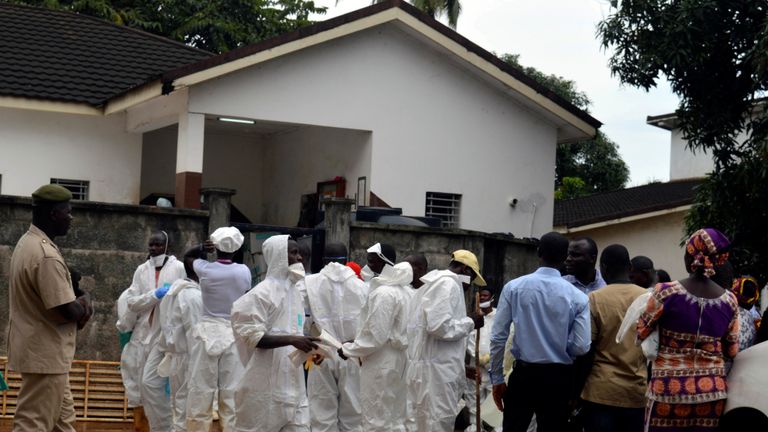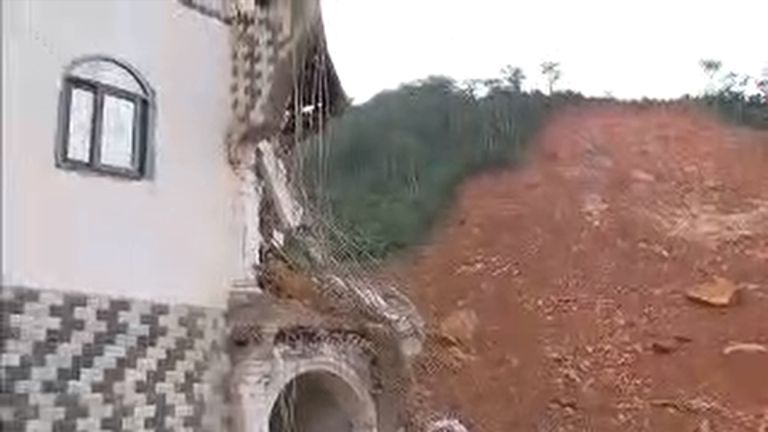Desperate search for survivors after Sierra Leone mudslide
Entire communities have been wiped out by the mudslides, with many bodies so unrecognisable relatives can't identify them.
Wednesday 16 August 2017 16:33, UK
Only when stood at the foot of the Sugar Loaf mountain do you get a sense of the enormity of this disaster.
Thousands of houses have been crushed. All that remains among the rubble are the clothes from the washing lines flattened in the mudslides.
Enormous rocks and boulders have .
"My family are still alive under the mud", one woman cries, as she points to the colonel, leading the search operation.
But before that operation can begin, around a hundred soldiers, wearing military uniform and yellow helmets, pray at the foot of the mountain.
Diggers are used to remove several tonnes of mud, but this is a painstaking process and the chances of recovering anyone alive are slim.
"Body bag, body bag, body bag", one officer shouts. A person's limbs have been found. They're placed into a rice sack and stretchered off and onto an ambulance.
The sound of the mudslide was so loud that many awoke, thinking there had been a plane crash.
As the hours go by, yet more stories of loss emerge. An entire church congregation, sheltering from the rain on the mountainside, was killed when disaster struck.
Resident, Alie T Marah, points at some of the rubble and says: "My house is buried underneath there. There's nothing left. I've lost my brother, his wife and their five children. There used to be two hundred houses here. Now there is nothing".
Through the streets of the mountain village of Regent, ambulances beep their horns, desperate to reach Freetown's mortuary as quickly as possible.
There, hundreds of men and women stand outside, queuing to identify relatives. Many are in tears.
Inside, it's chaos. Bodies are piled up on top of each other, battered and bruised. The smell is indescribable. Human suffering at its very worst.
Doctors, nurses, even volunteers help to empty the body bags. They're covered head to toe in protective white overalls, left over from the Ebola crisis that spread through this country just three years ago.
On leaving the mortuary, one gentleman said he wasn't able to identify his loved ones because the bodies were simply unrecognisable.
As the rain pours from the skies, yet more body bags arrive at the morgue. Ornate coffins leave, ready for burial.
Many say this is one of the worst natural disasters to hit Sierra Leone and with the rescue effort ongoing, the death toll is likely to rise even further.





